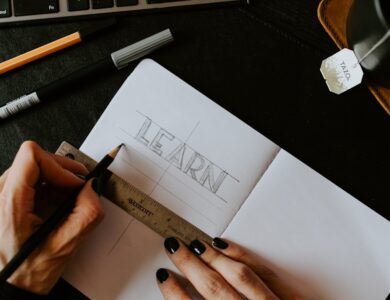Learner mindset is when an individual considers every new experience as an opportunity to learn. As a trainer, I need to know how to achieve this mindset with my participants when delivering sessions so it is crucial to know when they are out of this mindset.
I also need to know which questions to use in order to get them into the direction of a learner mindset and help them learn. It helps me recognize their phases of learning and deliver even better sessions.
In this article, we are going to learn about the judger mindset, learner mindset and some questions you can use. It is inspired by the book “Change your questions, change your life” which I recommend to anyone who is working in a field of youth work.
The judger mindset vs. the learner mindset
We’re usually barely conscious of asking questions, especially the ones we ask ourselves. But they’re a part of our thought process nearly every moment. When we get stuck, hunting for answers and solutions is natural. But in doing so, we often unintentionally create blocks instead of openings. We are looking for answers without posing questions.
| Judger mindset | Learner mindset |
| Judgmental of self and others | Accepting of self and others |
| Reactive and automatic | Responsive and thoughtful |
| Blame | Responsibility |
| “Know-it-all” | Values not knowing |
| Personal Perspective only | Consider other’s Perspective |
| Defends Assumption | Questions Assumption |
| Primary Mood – Protective | Primary Mood – Curious |
Now, the point is not to be 0% judger and 100% learner because this is not realistic. We are humans, not robots. I also often defend my assumptions and am protective over some things but also get aware of that and sometimes try to consider other person’s perspective and be more curious instead of automatically protective.
We all have both mindsets and the power to choose where we operate from at any moment.
Switch the questions from judger to learner
How can we recognize when being in a judger more and how to go get to learner? Here are some questions to consider:
1) What assumptions am I making?
2). How else can I think about this?
3) What is the other person thinking, feeling, and wanting?
4). Is this working?
5) What am I missing or avoiding?
Change your question from ‘ Who’s to blame’ to ‘ What am I responsible for?’
Blame is Judger. Responsibility is Learner
Also, here are some questions to ask yourself when being in the learner zone because often get there and don’t know what to do with it:
1) What do I want?
2) What works for me?
3) What are my choices?
4) Which action steps make sense?
5) What is realistically possible?
How to apply this as a trainer?
First, by knowing the existence of these two mindsets, you can recognize when your participants are stuck in the judger mode and it is blocking them from fully experiencing your session or getting to new learnigs. That is the moment when you can use those questions to navigate them to the learner mode.
Second, you can improve your debriefings if you recognize that the session experience was leaned more towards the judgement and get them aware of the learner mode because, on a training course, the main part is about being in the learner mode and learning but also swinging to judger from time to time even they are not aware of it.
Third, you can improve yourself as a trainer by asking the right questions to yourself before creating sessions, when collaborating with other trainers and observing their work. A question I often ask myself when working in a team on a training course is: “How can I allow other people to contribute to me? And, How can I contribute to others?”
Bonus material
In the end, I would like to share a choice map with you that I believe should be printed and placed in every office where several people are working, just to remind you about those mindsets and not to get stuck in one.
Remember, the more questions you ask, the more doors you open.
Good luck!


